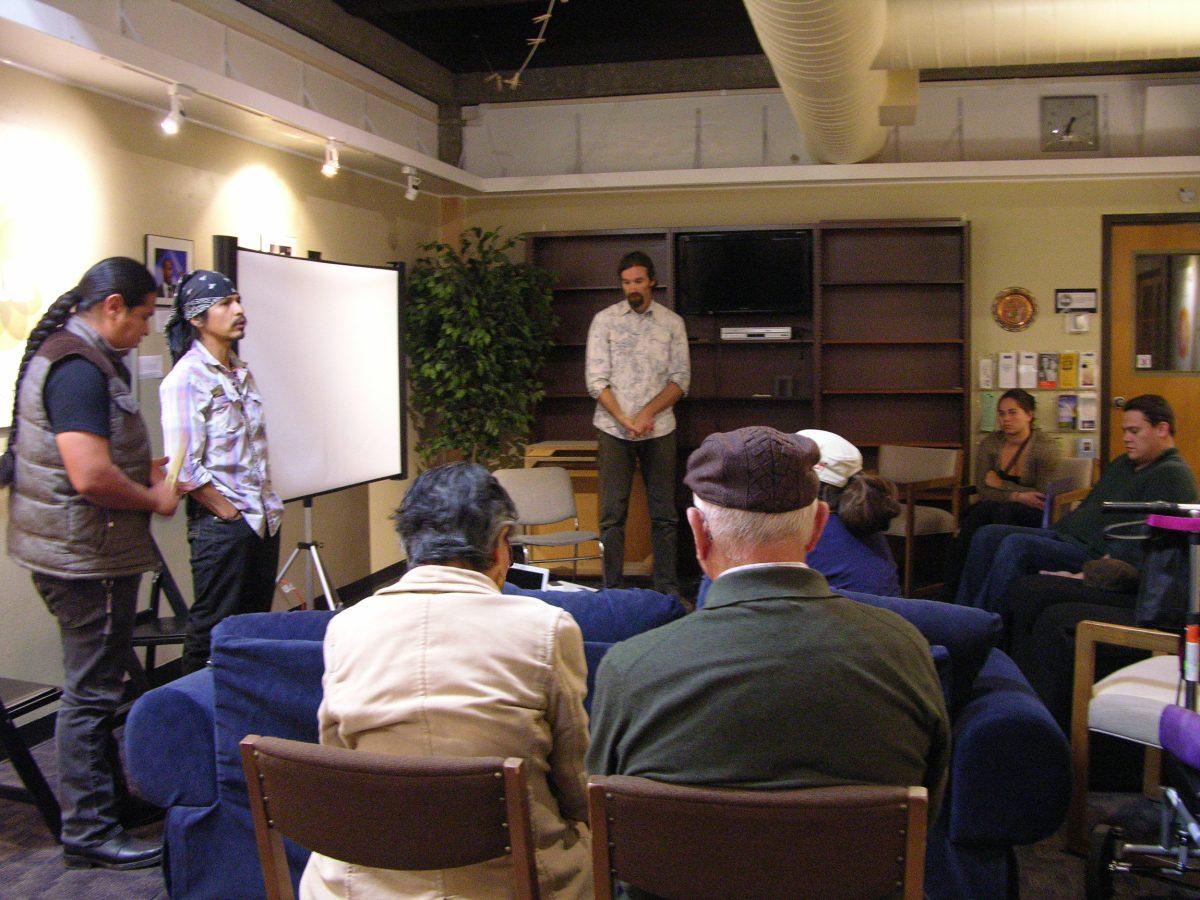Walking down the aisles of a grocery store, one can see the stickers on produce labeled “organic,” “product of USA,” or “Guatemala,” letting customers know where and how their food was grown. But how many ask, “Where do the seeds they plant come from?”
Benjamin Fahrer asked that when he came to the Hub on Wednesday to discuss regenerative agriculture, social and ecological health, as well as re-establishing the Indigenous Rumsen Ohlone Tribe’s presence on the land.
The Huffington Post reports that 19 billion pounds of fruits and vegetables are wasted every year in the U.S. The Center for Biodiversity and Conservation reports that 96 percent of the commercial vegetable varieties available a century ago are now extinct.
“We can’t separate food and culture. When we talk about social justice, we talk about vitality,” said Mark Fabionar, director of the Hub. “Do people have access to resources? The access to food and the ability to grow food is a true social justice issue.”
An intimate crowd of less than a dozen people met to hear Fahrer speak out about these facts along with Ohlone tribe brothers, Antonio and Vincent, who chose not to disclose their last names, and initiated the night with two songs, “Hummingbird” and “Big Foot.” The two sang while Vincent played the “clapper-stick,” an instrument made out of elderberry.
Together they spoke of their experiences farming, anecdotes about their lives and their mission to begin Cornerstone Farm. Fahrer’s passion lies in organic farming that considers the natural conditions of the land when deciding which items to plant.
Rather than stripping the land down, pumping in water for irrigation and pesticides, he believes in natural ground cover, extensive planning and consideration of vegetable growth cycles and knowledge of different microclimates.
Cornerstone Farm will be a seed farmer’s growing cooperative that will grow and sell seeds to farms within a 100-mile radius of the San Francisco Bay Area, composed of 17 counties.
In partnership with the Indigenous Rumsen Ohlone Tribe, the goal of this seed hub would be to bring diverse, organic, climate-diverse and openly pollinated grown seeds to the local community, improving food security by increasing diversity.
In addition, Cornerstone Farm will work towards restoring the presence of the Indigenous Rumsen Ohlone Tribe to the Bay Area. The Ohlone tribe tended land in the Bay Area and will help guide land stewardship practices used by Cornerstone Farm.
The goal is to create a space in which current and future members of the Ohlone tribe will be able to come to, feel at home and continue to deepen their relationships with the land.
“I’ve always been passionate about the land and living off of it,” said Antonio. “Seeds can be many different things, such as seeds of thought. I grew up living off of the land and grew up with my father hunting California deer.”
Eventually the goal of Cornerstone Farm is to develop five to six farms in different microclimates that will be able to grow a variety of crops. The seeds they produce will be governed by the individual needs of the farmers in the area so that they no longer need to rely on large corporate seed companies.
Fahrer claims that there is an 800 percent markup on the price seeds are sold for compared to what they cost to grow.
“I think it is very important for people our age to look at social issues like socio-economic inequality, and physical issues like the environment,” said senior Tomio Endo. “Find creative solutions to them where we can balance the social, cultural and economic inequalities.”
Land to build this farm still needs to be acquired. The members of Cornerstone Farm have been actively seeking the perfect location, but have been unsuccessful. Despite being outbid on the last location, Fahrer is standing by his land criteria and continuing to look for the next location.



































